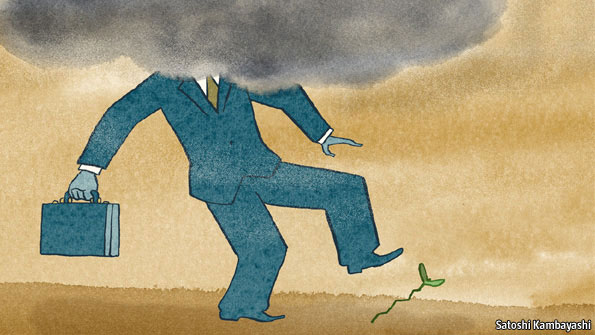Woke up this morning as a 37 year-old. Semi-hungover, Indigo Girls playing on my Pandora. I walked my dog at 5:14am because that’s what one does. I came back, did two things for work, read some shit on the Internet, and sat down to write this blog. Hadn’t blogged since Friday or so, and I’m sure my 24 fans out there were missing me.
Eventually I come to this article on Stanford’s website, which is basically an interview with the CEO of NetApp. I’ve never heard of that company but I guess they did $5.2 billion last year, so good for him. This part stuck out:
I also had to learn to deal with uncertainty. With engineering, there’s often a black-or-white answer. But as an executive, that’s much rarer. If you wait for certainty, you’re almost always too late.
He’s saying that because — context clues! — he went from coding to the biz side across his career.
Short quote, but powerful lesson.
All we really have is uncertainty
You ain’t got no idea about the future. I wrote about this recently, and probably more eloquently.
So this morning I’m 37, right? Let’s say you found 30 year-old me and asked him, “What is life going to be like at 37?”
I’d assume I’d probably have kids, be married, own a house, working in some cool job, etc.
None of those things are actually true.
Do I hate my life? No.
But is it very different than I would have thought? Yes.
Uncertainty is a norm.
The problem with work and uncertainty
Work is so tied to self-worth and relevance for people — and control, truly — that uncertainty terrifies (and I mean terrifies) people. That’s why we drown everything in process, even if the processes make no sense. (We’ve all worked in those places.) That’s why “change management” programs are usually a complete mess whereby nothing changes.
Think on it like this: what are the five or six worst words in business?
“We’ve always done it that way.”
Those words literally sink companies and departments every day. That’s part of what “disruption” is all about. We think it’s the tech stack, but that’s only part of it. Disruption is fast, nimble companies smacking that above statement in the mouth.
“We’ve always done it that way” = certainty, comfort, control.
The opposite = uncertainty.
Rubber meets road here: it’s a very VUCA time in the world now, especially work. The “U” in VUCA literally means “uncertainty.” You have to embrace it.
Too often, though — for reasons entirely psychological — we bury our heads in the sand about it.
The uncertainty-change relationship
Uncertainty and change are probably siblings, or at the very least cousins.
We tend to think change is this big, hard thing (that’s what she said) that none of us can tackle.
In reality, that’s not even true.
Change isn’t nearly as hard as we think.
We all adapt and change every day.
So maybe dealing with uncertainty isn’t that hard either?
Rubber meets road, Part II: it doesn’t have to be, no. But the problem with uncertainty in a work context is that work has an economic function in your life. You gotta pay rent. Bills. Etc. Uncertainty implies that all might go to shit. If you’re a male, and you define yourself as a “provider,” that’s a goddamn nightmare.
But the reality is this: uncertainty is literally the norm for your life.
Think on this: aside from a statement like “I’ll be at work and then the grocery store,” do you have any goddamn idea what’s going to happen tomorrow?
No. You don’t.
So we’re all in a constant wave of uncertainty.
Ain’t it time we embrace that?

Couldn’t agree more, as per usual. Learning to accept uncertainty is something that I continue to grapple with myself. It doesn’t mean that we shouldn’t throw planning and preparation out the window—a term that describes that hysterical reaction more accurately would be “nihilism”—but it’s helpful, I think, to acknowledge that things may not always go the way you intended them to and to learn not to freak out when that happens.
The idea of “settling down”, while a nice ideal, is sort of insidious, isn’t it? I think it important to remember that it’s a mental model we apply when we want to simplify decision making and reduce anxiety about the seemingly chaotic universe that surrounds us. In these ways, “settling down” can be helpful.
With that said, I think too many of us get attached to the idea of “settling down” without remembering that it’s simply a construct of our imaginations.
Cheers, as always